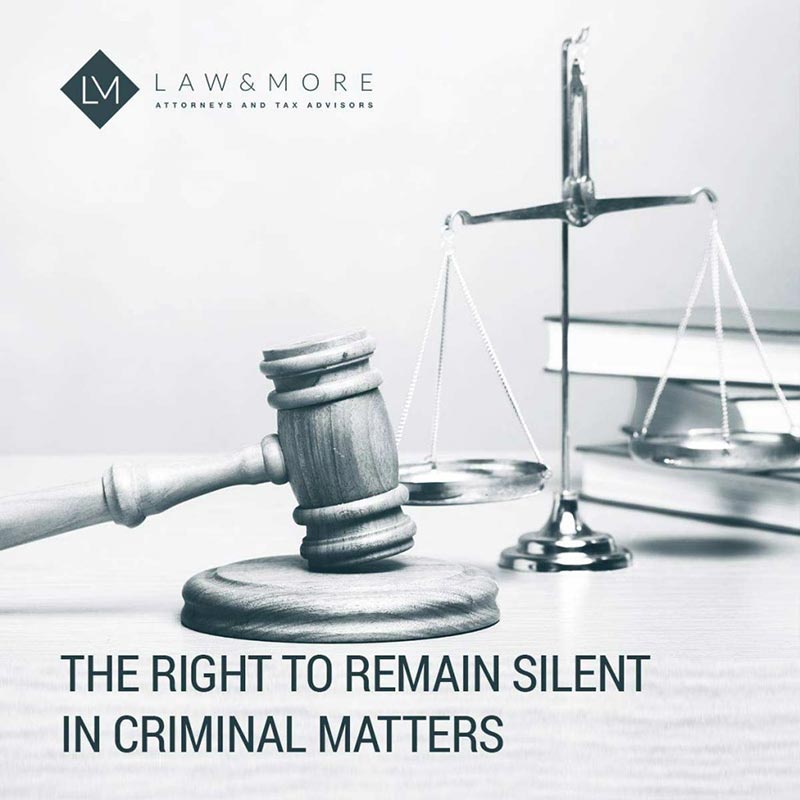Due to several high-profile criminal cases that have arisen in the past year, the suspect’s right to remain silent is once again in the spotlight. Certainly, with victims and relatives of criminal offenses, the suspect’s right to remain silent is under fire, which is understandable. Last year, for example, the persistent silence of the suspect of multiple “insulin murders” in care homes for the elderly led to frustration and irritation among the relatives, who of course wanted to know what happened. The suspect constantly invoked his right to remain silent before the Rotterdam District Court. In the long run, this also annoyed the judges, who nevertheless continued to try to get the suspect to work.
Article 29 of the Code of Criminal Procedure
There are various reasons why suspects, often on the advice of their lawyers, invoke their right to remain silent. For example, this can be purely strategic or psychological reasons, but it also happens that the suspect fears the consequences within the criminal environment. Regardless of the reason, the right to remain silent belongs to every suspect. It is a classic right of a civilian, since 1926 has been fixed in Article 29 of the Code of Criminal Procedure and must therefore be respected. This right is based on the principle that the suspect does not have to cooperate with his own conviction and cannot be forced to do so: ‘The suspect is not obliged to answer.’ The inspiration for this is the prohibition of torture.
If the suspect makes use of this right, he can thereby prevent his statement from being regarded as implausible and unreliable, for example because it deviates from what others have stated or from what is included in the case file. If the suspect remains silent at the beginning and his statement is later fitted within the other statements and the file, he increases the chance that he will be believed by the judge. Using the right to remain silent can also be a good strategy if the suspect is unable to provide a plausible answer to questions from, for example, the police. After all, a statement can always be made in court late.
However, this strategy is not without risks. The suspect should also be aware of this. If the suspect is arrested and placed in pretrial detention, the appeal to the right to remain silent may mean that a ground for investigation remains for the police and judicial authorities, on the basis of which the pretrial detention for the suspect continues. It is therefore possible that the suspect may have to remain in pretrial detention longer because of his silence than if he had made a statement. Furthermore, it is possible that after a dismissal of the case or an acquittal of the suspect, the suspect will not be granted damages if he has himself to blame for the continuation of the pretrial detention. Such a claim for damages has already been rejected on that ground several times.
Once in court, silence is not without consequences for the suspect either. After all, a judge can take silence into account in his verdict if a suspect does not provide any openness, both in the statement of evidence and in the sentence. According to the Dutch Supreme Court, the silence of the suspect can even contribute to the conviction if there is enough evidence and the suspect has not provided any further explanation. After all, the suspect’s silence can be understood and explained by the judge as follows: “The suspect has always been silent about his involvement (…) and has therefore not taken responsibility for what he has done.” Within the context of the sentence, the suspect can be blamed for his silence that he has not repented or regretted his actions. Whether the judges take the use of the right to remain silent by the suspect into account for the sentence, depends on the judge’s personal assessment and can therefore differ per judge.
Using the right to remain silent may have advantages for the suspect, but that is certainly not without risk. It is true that the suspect’s right to remain silent must be respected. However, when it comes to a lawsuit, the judges increasingly consider the silence of suspects to their own disadvantage. After all, the suspect’s right to remain silent is in practice regularly at odds with the increasing role in criminal proceedings and the importance of victims, surviving relatives or society with clear answers to the questions.
Whether it is wise in your case to make use of the right to remain silent during the police hearing or at the hearing depends on the circumstances of the case. It is therefore important that you contact a criminal lawyer before deciding regarding the right to remain silent. Law & More lawyers specialize in criminal law and are happy to provide advice and/or assistance. Are you a victim or the surviving relative and do you have questions about the right to remain silent? Even then Law & More’s lawyers are ready for you.
